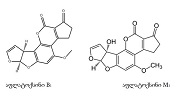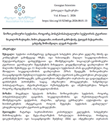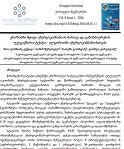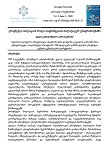The Role of Mass Communication in the Electoral Process of Ultra-Democratic Countries
Downloads
The fundamental prerequisites of democracy encompass freedom of speech and opinion expression, a high degree of pluralism, and equitable elections. According to sociological research, the quality of democratic processes within a nation is contingent upon public awareness. Enhancing the electorate's awareness through media channels is pivotal, underscoring the necessity to examine the media's role within contemporary electoral frameworks. The media emerges as a mechanism for shaping public opinion, thereby exerting significant influence on socio-political matters, including electoral processes. This research delineates the media's functions concerning electoral issues, its interaction with the audience, and its societal impact. The paper aims to analyze the experiences of various countries regarding media engagement in electoral systems. Key words: elections, media, mass communication, democracy, pluralism.
Downloads
Copyright (c) 2024 Georgian Scientists

This work is licensed under a Creative Commons Attribution-NonCommercial-NoDerivatives 4.0 International License.


























































































































































































































